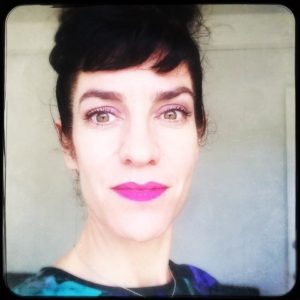Elizabeth Doud
Elizabeth Isaacs Doud is an artist, arts organizer, activist, and researcher who has worked in these capacities in the field of performing arts in international exchange contexts, with a focus on projects for and by performing artists responding to issue of climate change and climate justice. Currently pursuing her Ph.D. in Performing Arts at the Federal University of Bahia in Brazil, she researches how artists contribute to climate justice movements in the Americas; her special focuses include experimenting with models of support and production for these artists, building of networks of artists and climate justice allies, and assembling resource materials for practitioners.
Ms. Doud has served as the Climakaze Artistic Director for FUNDarte, Inc., in Miami, Florida since 2014. Climakaze is a model platform and think tank for cultural collaboration and climate action that examines the artist’s role in creating sustainable futures for South Florida. Doud is also the Performing Americas Program Coordinator for the National Performance Network, managing a project that focuses on bringing performing artists from Latin America to the United States. She has participated in numerous conferences, such as A Fabrica de Lagrimas de Sereia: An Eco-Performance Panel, as part of Oceanography Week, hosted by the Federal University of Bahia’s School of Geo-Sciences in July 2016. Her recent performances include Siren Jones: Grief! for Fragile Habitat: An Emotional Lexicon of Florida International University’s Eco-Humanities Program, and Siren Arts’ A Fabrica de Lagrimas de Sereia,a performance in Portuguese on Gamboa Beach. Ms. Doud received her MFA in Creative Writing from the University of Miami (2004) and her BA in Spanish/Romantic Linguistics from the University of Washington (1993).
While serving in the Rapoport Center's Visiting Professor/Practitioner Program, Ms. Doud will work in Austin for a two-week period in November 2017 and assemble a think-tank atmosphere to discuss and plan approaches with collaborators, faculty, students and local artists engaged in this cultural production related to climate justice.

